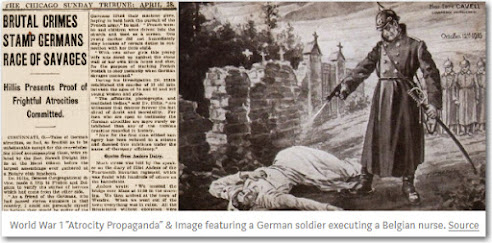Saturday, October 31, 2020
BIDEN, THE MANCHURIAN CANDIDATE
Hace 40 años yo vi a Ronald Reagan resucitar una nación que había perdido la medida de su poder y la conciencia de su destino. Entonces, yo era un recién llegado y el enemigo estaba lejos. Ahora, se trata de la patria de mis hijos y el enemigo aguarda en mi patio. Para mí, está claro. Cuestión de principios. Así en la paz como en la guerra, mejor perder con Trump que ganar con Biden.
Uped. Americatv.com 10/31/2020
Sunday, October 25, 2020
A SHERLOCK PARA SIEMPRE
A SHERLOCK, MI ETERNO COMPAÑERO
A SHERLOCK PARA SIEMPREA él, también mi amigo y más que ningún PlateroA mi incondicional compañeroQue espera y atiende en la inequívoca miradaEn mi reflejo, buscando y siguiendo mi vozQue persigue con devoción y adivina mis sonidosSin importar lo que le diga, porque ya lo sabe.Su atención reconoce mis intencionesY adivina mis propósitos.A él que los encarna a todos y al último.Todos en él, en él todos.Yo en ti, tu conmigo.Ahora perdido sin élPero con él para siempre,En su dolor último y breve aliento,Su última mirada,Su última esperaPor mi aprobación, mi caricia.A él, su compañía y silueta por todas partes,En el atardecer compartidoTestigos de la flecha del tiempo y su polvo de estrellasA su carácter amoroso e inteligenteQue para siempre me sigue cuando me adivina.A su humanidad que también es la míaA mi celoso guardián absolutoA pesar de sus favoritas travesuras.A él para siempre conmigoAmigo de David, Venus y la tardeSiguiéndome sin descansoAunque olvidara el camino.Solo confundido cuando no encontraba mi respuestaCeloso y egoísta de mis destinos.A él, sus olores y al sonido de su miradaA mi amigo y confidenteA su ausencia tristeCon él la vida no era igualSin él, la espiral de la vida se trastornaEl dolor ya no es el mismoY sin él tampoco el tiempo será igual.Algo me cambió para siempreAunque esté conmigoComo sanar la pérdidaCuando el dolor no renuncia a dejarmeRenunciando a olvidarle sin poder hacerloY a llevarle en el silencio sin hablar de él.Porque duele no poderle verY mirar su imagen y siluetaO el placer constanteDe su atención y contacto.El mío no es un dolor único o mayorPero es el mío por su pérdida
Es la herida que no puedo tocarEl mío por su ausenciaSiempre atento a mi miradaSabiendo lo que pensaba sin necesidad de hablarMi vida cambia porque no estáAunque nunca se fue y algo me falte para siempreEspero que regreses poco a pocoCada día mas cerca de los que ya están contigoSin el dolor de tu ausenciaLa humanidad de tu lealtadQue veo por todas partes y siento en todos tus caminosAhora que no estás, nunca me dejesMantén tu absoluta compañía para siempreCon tus olores, atenciones y el último aliento que compartimosProtégeme en tu perpetuo sueñoY que tu compañía sea eterna cuando compartas mi sueño.
Sunday, October 4, 2020
This Is How Your Fear and Outrage Are Being Sold for Profit
The enemy is out there — just check your feed.
One evening in late
October 2014, a doctor checked his own pulse and stepped onto a subway car in
New York City. He had just returned home from a brief stint volunteering
overseas, and was heading to Brooklyn to meet some friends at a bowling alley.
He was looking forward to this break — earlier that day he had gone for a run
around the city, grabbed coffee on the High Line, and eaten at a local meatball
shop. When he woke up the next day exhausted with a slight fever, he called his
employer.
Within 24 hours, he would
become the most feared man in New York. His exact path through the city would
be scrutinized by hundreds of people, the establishments he visited would be
shuttered, and his friends and fiancée would be put into quarantine.
Dr. Craig Spencer had
contracted Ebola while he was treating patients in Guinea with Doctors Without
Borders. He was not contagious until long after he was put into quarantine. He
followed protocol to the letter in reporting his symptoms and posed no threat
to anyone around him while he was in public. He was a model patient — a fact
readily shared by experts.
This did not stop a media
explosion declaring an imminent apocalypse. A frenzy of clickbait and
terrifying narratives emerged as every major news entity raced to capitalize on
the collective Ebola panic.
Social Media exploded
around the topic, reaching 6,000 tweets per second, leaving the CDC and public
health officials scrambling to curtail the misinformation spreading in all
directions. The fear traveled as widely as the stories reporting it. The
emotional response — and the media attached to it — generated billions of impressions
for the companies reporting on it.
Those billions were
parlayed directly into advertising revenue. Before the hysteria had ended,
millions of dollars worth of advertising real-estate attached to Ebola-related
media had been bought and sold algorithmically to companies.
The terror was far more
contagious than the virus itself, and had the perfect network through which to
propagate — a digital ecosystem built to spread emotional fear far and wide.
I’m going to
tell you a few things you probably already know
Every time you open your
phone or your computer, your brain is walking onto a battleground. The
aggressors are the architects of your digital world, and their weapons are the
apps, news feeds, and notifications in your field of view every time you look at
a screen.
They are all attempting to
capture your most scarce resource — your attention — and take it hostage for
money. Your captive attention is worth billions to them in advertising and
subscription revenue.
To do this, they need to
map the defensive lines of your brain — your willpower and desire to
concentrate on other tasks — and figure out how to get through them.
You will lose
this battle. You have already. The average person loses it dozens of times per
day.
This might sound familiar:
In an idle moment you open your phone to check the time. 19 minutes later you
regain consciousness in a completely random corner of your digital world: a
stranger’s photo stream, a surprising news article, a funny YouTube clip. You
didn’t mean to do that. What just happened?
This is not your fault —
it is by design.
The digital rabbit hole
you just tumbled down is funded by advertising, aimed at you. Almost every
“free” app or service you use depends on this surreptitious process of
unconsciously turning your eyeballs into dollars, and they have built
sophisticated methods of reliably doing it. You don’t pay money for using these
platforms, but make no mistake, you are paying for them — with your time, your
attention, and your perspective.
This is not a small,
technical shift in the types of information you consume, the ads you see, or
the apps you download.
This has actually changed
how you see the world.
The War for
Your Attention
Before I go any further,
let me assure you that this is not a list of grievances about the evils of
technology. I am not a Luddite. Like much of humanity, I deeply value my
devices as a helpful prosthesis for my memory, my productivity, and my ability
to connect to the people I care about.
This is instead a sober
evaluation of how the strategies of digitally capturing our attention have
altered us — our lives, our media, and our worldview. These incremental shifts
have added up to enormous changes in our politics, our global outlook, and our
ability to see each other as fellow humans.
Many of the biggest
problems we face in this moment as a society result from decisions being made
by the hidden creators of our digital world — the designers, developers, and
editors that create and curate the media we consume.
These
decisions are not made with malice. They
are made behind analytics dashboards, split-testing panels, and walls of code
that have turned you into a predictable asset — a user that can be mined for
attention.
They do this by focusing
on one over-simplified metric, one that supports advertising as its primary
source of revenue. This metric is called engagement, and emphasizing it —
above all else — has subtly and steadily changed the way we look at the news,
our politics, and each other.
This article is one of a
series exploring how these strategies of capturing our attention are
influencing our lives.
What follows is an
exploration of how the primary artery of our factual information — the News —
has been fundamentally altered by these methods.
How? Let’s look to the
recent past.
The History of
the New
“The Media” as we know it
is not that old. For most of our history the News was, literally, the plural of
the ‘New’ thing(s) people heard about and shared, and was limited by physical
proximity and word-of-mouth. Since the invention of the printing press, the
news consisted of notes posted in public places and pamphlets distributed to
the small number of people who could actually read them.
Between the 18th and 19th
centuries newspapers became fairly common, but were largely opinion rags
containing political essays, sensationalized stories, and eventually
muckraking. They were megaphones for people to exert political influence, and
many had an extremely loose relationship with facts.
During the lead up to
World War I, unchecked
propaganda from all sides in the news reached a fever-pitch, with
every belligerent participating in a massive fight for public opinion. By the
end of the war it was clear that information warfare was a powerful weapon — it
could raise armies, incite violent mobs, and destabilize whole nations.
In response to this
systematic manipulation of the truth, there was a concerted effort to create an
institution of fact-driven journalism beginning in the 1920's. This process was
ushered forward by the advent of the first mass-media communication networks:
national newspapers and national radio. These slowly gave way to television,
and between these three new platforms, a global media system took hold — buoyed
by the tenets of journalism.
The news continued to have
competitors in the battle for attention, and because of this it continued to
flirt with hyperbole. The drive to sell (papers, ads, products) is naturally
somewhat at odds with the idea of editorial accuracy and measured factual reporting.
Journalistic standards, libel laws, and industry-shaming became common
mechanisms to help curb this slide into sensationalism.
Yet something happened
recently when the news met the internet and began migrating into our pockets:
it started losing the battle for our attention.
The Rise of
Algorithmic Engagement
Here is the rest of the
article very well worth to read it!
https://medium.com/@tobiasrose/the-enemy-in-our-feeds-e86511488de



































